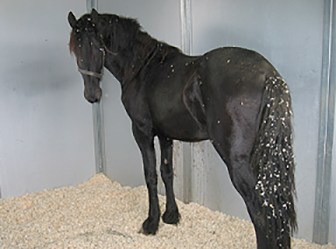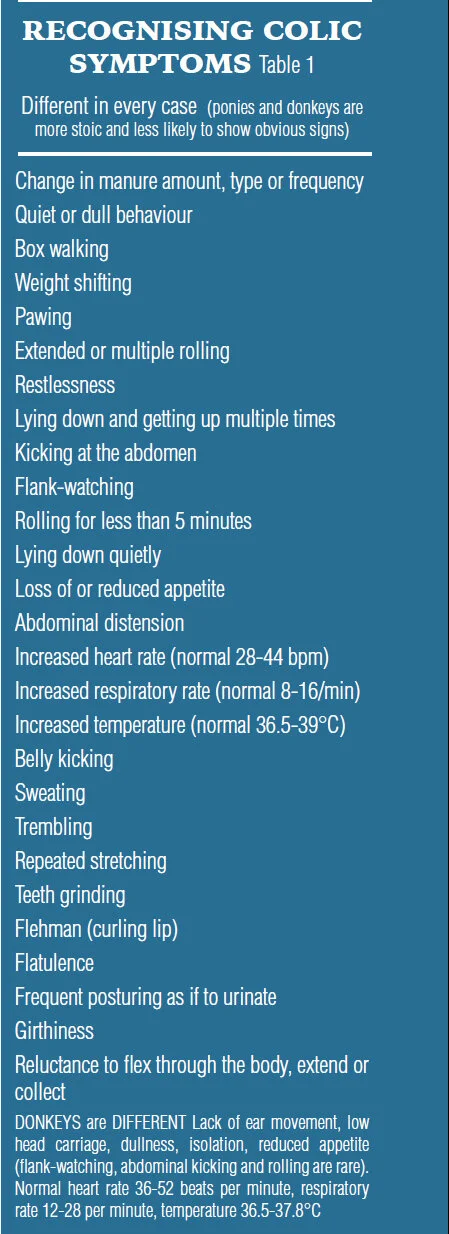How to Recognize Colic in Horses

Colic is a common and potentially life-threatening condition in horses that requires prompt recognition and treatment. This article will guide you through the signs, causes, and steps to take if you suspect your horse is suffering from colic.
What is Colic?
Colic refers to abdominal pain in horses, which can stem from various gastrointestinal issues such as gas buildup, impaction, or twisted intestines. It is not a disease itself but a symptom of underlying problems.
Common Signs of Colic in Horses
Recognizing colic early can save your horse’s life. Here are the most common signs to watch for:
| Symptom | Description |
|---|---|
| Pawing | Repeatedly pawing at the ground, indicating discomfort |
| Rolling | Rolling on the ground, often trying to relieve pain |
| Restlessness | Frequent shifting of weight or pacing |
| Sweating | Excessive sweating without obvious cause |
| Lack of Appetite | Refusal to eat or drink |
| Abnormal Posture | Stretching out or lying down unusually |
| Increased Heart Rate | Elevated pulse, often above 48 beats per minute |
| Reduced Gut Sounds | Decreased or absent intestinal sounds |
Causes of Colic
Understanding what causes colic can help in prevention:
- Dietary Changes: Sudden changes in feed or poor-quality feed can upset the digestive system.
- Lack of Water: Dehydration can lead to impaction colic.
- Parasites: Heavy parasite loads can cause intestinal irritation.
- Stress: Changes in environment or routine can affect gut motility.
- Physical Obstruction: Foreign objects or twisted intestines.
What to Do if You Suspect Colic
If you notice signs of colic, take the following steps immediately:
- Call Your Veterinarian: Early intervention is critical.
- Remove Feed: Stop feeding to prevent further digestive upset.
- Monitor Vital Signs: Check heart rate, respiratory rate, and mucous membrane color.
- Walk Your Horse: Gentle walking can help relieve gas and prevent rolling injuries.
- Avoid Medications: Do not administer painkillers or laxatives without veterinary advice.
Prevention Tips
- Maintain a consistent feeding schedule.
- Provide constant access to clean water.
- Regular deworming and dental care.
- Avoid sudden changes in diet or environment.
FAQ
Q: How quickly should I act if I suspect colic?
A: Immediate veterinary attention is essential; delays can worsen the condition.
Q: Can all colic cases be treated medically?
A: No, some cases require surgery depending on severity.
Q: Is colic more common in certain breeds?
A: While all horses can get colic, some breeds may be more prone due to anatomy or management.
By understanding and recognizing the signs of colic, horse owners can act swiftly to ensure their horse’s health and safety. Early detection and proper care are key to successful outcomes.
